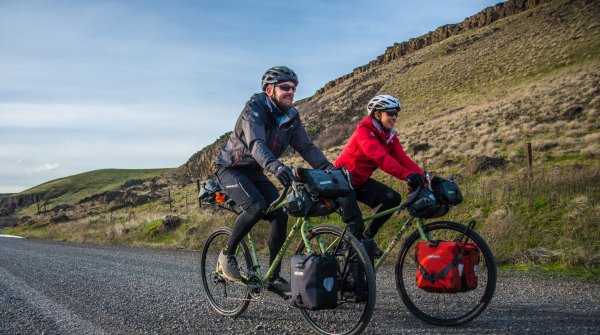It's never too late to learn how to swim. Although it is much easier to learn the basics in childhood, nothing stands in the way of the project even in adulthood. The following reasons show why this is the case.
- Swimming is essential for survival
- Swimming is healthy
- Swimming as therapy
- Swimming helps to lose weight
- It is never too late for swimming
- No material costs
- Discover new worlds
- Swimming as strength training
- New vacation destinations
- Swimming is a balance and makes you happy
Even without intention, a person may get into deep water: the excursion boat capsizes, you fall into the pool .... It is simply vital to be able to stay afloat and, best of all, to be able to swim safely.
There is no sport that is healthier than swimming. This is mainly due to the holistic strain on the muscles and the relief of the joints through the buoyancy of the water. Swimming also strengthens the lung function and the cardiovascular system. In addition, swimming is considered a particularly low-injury sport. For many chronic diseases (respiratory tract, rheumatism, arthritis, skin diseases), swimming is prescribed as a treatment in special spas, such as thermal baths, brine baths, sulfur baths, mud baths or sea baths.
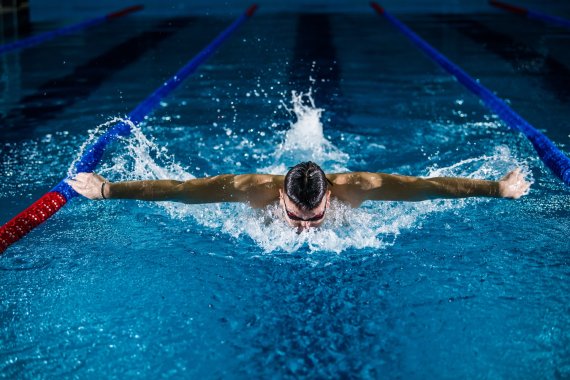
Regardless of age and often health condition, you can almost always swim. For many illnesses and injuries, swimming is even explicitly prescribed as sports therapy or rehab, for example after a broken bone, for cardiovascular diseases, after a stroke. Swimming is a top priority in sports for seniors and the disabled. Pregnant women are also allowed to go swimming and after delivery they come back for baby swimming.
People who are severely restricted in their movements due to physical infirmities, old age or great excess weight can (re)find their way to more activity through swimming. Swimming also burns a particularly large number of calories, making weight loss quick and effective. Around 350 calories are burned per 30 minutes when swimming. This is due to the 14-fold increased resistance of the water compared to endurance sports in the air.
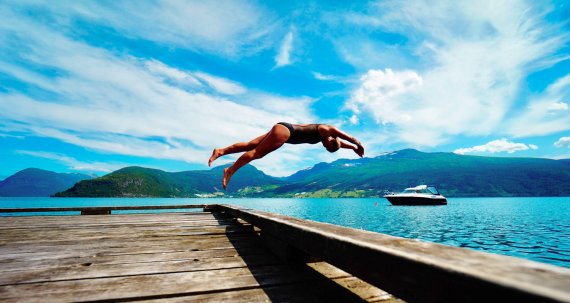
Babies can swim naturally, but then unlearn it again and need swimming aids. Children can swim freely from the age of four at the earliest. The best age for learning to swim is primary school, because this is when the coordination of arms and legs is fully developed. Later, adolescents or adults find it somewhat more difficult to learn the complex movement patterns, but they can still learn.
In the future, anyone who can swim once will only need water to practice the sport. In public waters such as rivers and lakes, the financial outlay is zero. Cooling off on hot days, ice bathing on New Year's Day - swimming is always possible, even outside indoor and outdoor swimming pools.
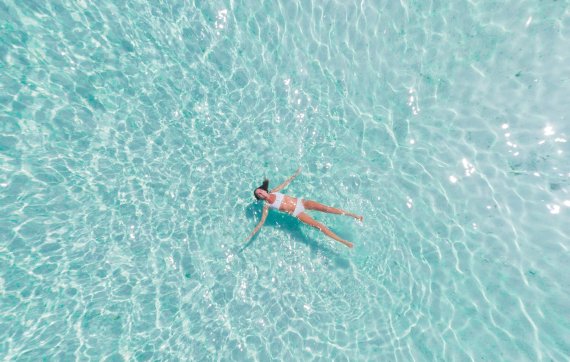
Swimming opens up a whole new realm of life for humans, the aquatic or underwater world. With aids such as diving goggles, fins, snorkels or oxygen tanks, people can move in and on the water in a variety of ways, without a boat or SUP board to reach islands and the depths to plants and animals that they otherwise do not get to see live outside of aquariums.
Everyone can be happy swimming at his own pace, in his favorite way of moving. One swims leisurely laps, the other swims lane after lane against the clock. And in between, people splash, slide and jump from the edge of the pool or from the highest tower. Whether intended or not, swimming is strength training par excellence, especially the back muscles are strengthened. This relieves the spine,tension is released and back pain disappears.

For the swimmer, not only the water world opens up, but also new areas on this earth. Those who can swim consider completely different destinations for trips and vacations. Beach, sea, ocean, river walks - all this then comes into question. Those who cannot swim deny themselves these options.
Like jogging and hiking, swimming is an endurance sport that is excellent for inner balance. The steady activity makes you forget the stress and worries of everyday life, stabilizes your pulse and breathing, and afterwards you are exhausted, but satisfied and cheerful.
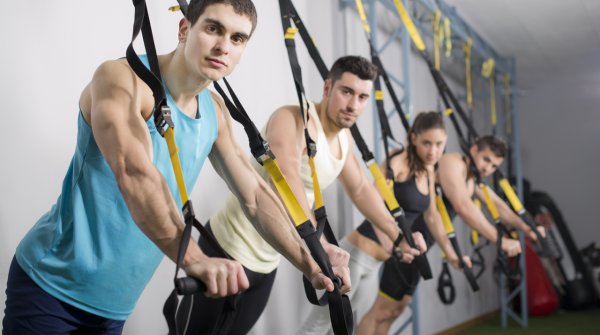 Know-HowThe 11 Best TRX Exercises
Know-HowThe 11 Best TRX Exercises
- Awards
- Mountain sports
- Bike
- Fitness
- Health
- ISPO Munich
- Running
- Brands
- Sustainability
- Olympia
- OutDoor
- Promotion
- Sports Business
- Textrends
- Triathlon
- Water sports
- Winter sports
- eSports
- SportsTech
- OutDoor by ISPO
- Heroes
- Transformation
- Sport Fashion
- Urban Culture
- Challenges of a CEO
- Trade fairs
- Sports
- Find the Balance
- Product reviews
- Newsletter Exclusive Area
- Magazine





